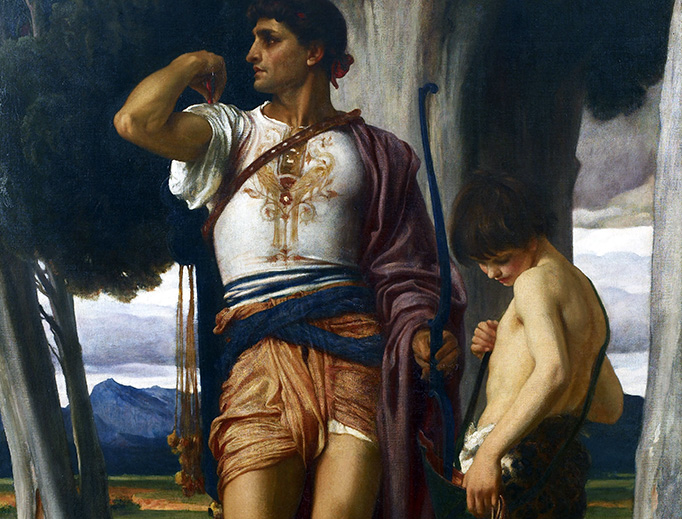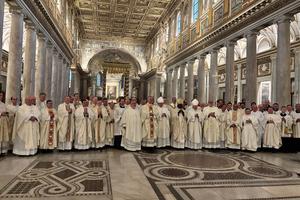What Priests Can Learn From David and Jonathan
We are called to be “useless servants,” doing only what we need to do.

The books from which we recently proclaimed at Mass, namely those of the Kings and Samuel, really demonstrate the effects of our fallen human condition. In this fierce national crisis, which is, in reality, only a small, family squabble blown out of proportion due to the roles that the players have in it, we see the reality of the effects of original sin.
Like gazing into a funhouse mirror, the image we see is distorted. All the positive emotions, because chosen people suffer from a spiritual myopia, turn negative. Without the Lord as the center, without the God who creates out of love as the axis and support, self-reliant human beings have no place to turn except in and on each other.
Look to Saul. Responsibility, leadership, the noble weight of being a king in this fallen order turns to ambition and desperation. When it comes to David, that ruddy-youth, the shepherd boy turned national treasure, Saul suffers from both jealousy and envy. Envy, because Saul wants what David has. Jealousy, because Saul does not want David to take away what he has.
It almost seems that Saul was almost doomed to failure as the earthly king of Israel, fit neither in temperament nor talent to be Israel’s ruler.
And into the picture comes Jonathan, the model of a true friend. In our fallen world, the friendship of David and Jonathan is misinterpreted by some with agendas. Jonathan, who is good, kind, virtuous, is a man who is self-possessed. He knows who he is and who it is that he is meant to be.
Jonathan knows that, on the natural level, when Saul dies (and judging by the way his father battles, that could be quite soon), he would be the king. But he knows that he is not the chosen one; no, that title belongs to David, the anointed, whom he treasures and supports as a friend.
In many ways, Jonathan is much like his successor, the friend of the Bridegroom, the one who must decrease so the Anointed could increase, John the Baptist. “Not me, but thee,” bellows John in the desert. Jonathan had every reason to hate David and to want to see him destroyed. Jonathan had every reason to want not David to take that throne which then currently belonged to his family. But Jonathan knows who he is and who is isn’t. It’s not his role to be king; it is not his place to rule; he is not to be the king; the bride is not his; his role is to be the friend of the bridegroom.
A question then for those who are priests and those in preparation for priesthood: In our lives as priests, invariably, we might find ourselves in the role of Saul — being the Lord’s anointed, trying to do the job, muddling along, seeking affirmation and not finding it in the people of God. Then along comes along a David into our lives — someone who is more talented, more lovable, more respected than we are. It should not matter, after all. We are called to be “useless servants,” doing only what we need to do, and yet, on the human level, it can hurt. Envy and jealousy might rear their ugly heads. We might then be faced with a dilemma. We have a choice: Are we to remain Saul, twisted with what scripture describes as a “jealous rage,” or are we to be like Jonathan, whose friendship mirrors that of God’s own with us — free, forgiving and fulfilling? What will we do when we who also are the Lord’s anointed encounter the Davids in our lives?
- Keywords:
- priesthood

















